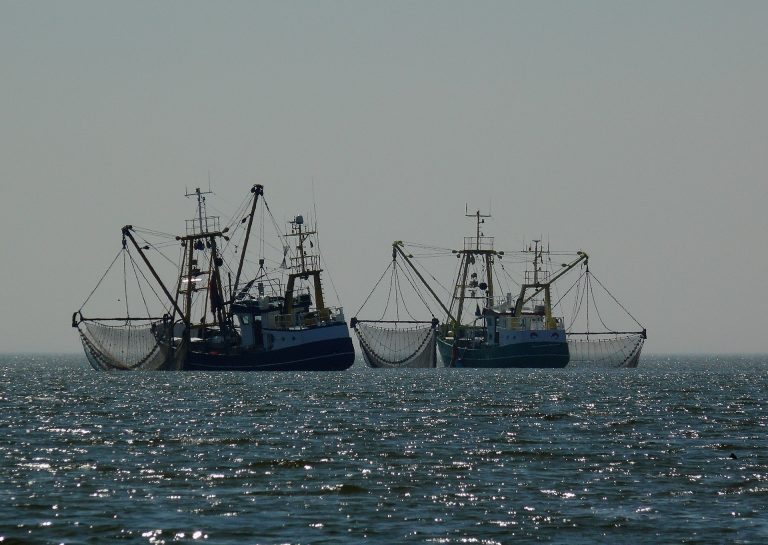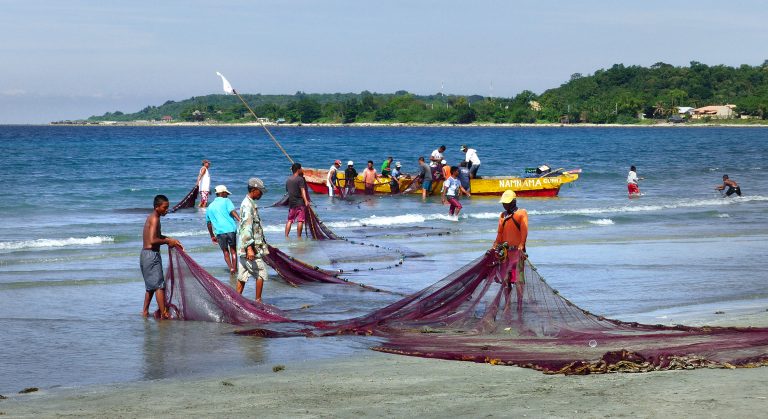 Researchers, policy makers and environmentalists have scrutinized the amount of money that the world’s top fisheries-subsidizing entities spend on harmful subsidies.
Researchers, policy makers and environmentalists have scrutinized the amount of money that the world’s top fisheries-subsidizing entities spend on harmful subsidies.
Taken together, these eight entities (China, the European Union, the United States, South Korea, Japan, Russia, Thailand, and Indonesia) provide 65 per cent of the global total harmful subsidies on things like fuel and fishing vessel upgrades.
However, a new study from the Institute for the Oceans and Fisheries (IOF) and the School of Public Policy and Global Affairs (SPPGA) asked if the focus on top-subsidizers has been at the expense of evaluating the “real” damage these subsidies do to the sustainability of fisheries.
“The provision of harmful subsidies is ubiquitous — everybody is doing it, obviously some countries are doing it a lot more,” said the study’s lead author and postdoctoral research fellow Daniel Skerritt. “We wanted to ask: ‘Is it right we’re just focusing on these top countries?’ and ‘Are there different ways to look at fisheries subsidies?’”
To that end, the researchers created a series of indicators to measure not only the total amount of money each entity spent on harmful subsidies but also the amount spent relative to how many fish they caught, both in their own waters and waters outside their exclusive economic zones (EEZ).
The study, published in Marine Policy, yielded some surprising results.
“Don’t think that just because you’re not providing six billion dollars that you’re not impacting, or potentially impacting the sustainability of the fish stock.”
When considering the amount of money spent on harmful subsidies compared to the total value of all of the fish caught, China, for example, dropped from No. 1 on the list of most harmful subsidizers to No. 20. When accounting for fish caught only within China’s EEZ, the country dropped to No. 34 – although, this drop is at the expense of the waters in which China’s distant water fishing fleet operates.
The study’s authors said small countries that provide harmful subsidies often don’t feel obligated to pursue more sustainable investments. This is because they see themselves as contributing a negligible amount to the problem of overfishing.
“Don’t think that just because you’re not providing six billion dollars that you’re not impacting, or potentially impacting the sustainability of the fish stock,” Skerritt said. “Any amount of harmful subsidies provided could be having detrimental impacts, so don’t provide them. Find another way to support fishers.”
 Rashid Sumaila, University Killam Professor at the IOF and SPPGA, co-author of the study, said that he and his colleagues and students have been fighting to get rid of harmful subsidies since the World Trade Organization (WTO) began talks to end the contributions 20 years ago. In those two decades, WTO member countries still haven’t found consensus.
Rashid Sumaila, University Killam Professor at the IOF and SPPGA, co-author of the study, said that he and his colleagues and students have been fighting to get rid of harmful subsidies since the World Trade Organization (WTO) began talks to end the contributions 20 years ago. In those two decades, WTO member countries still haven’t found consensus.
Sumaila said that he hopes the study will help broaden the debate about harmful subsidies and reveal the need for all coastal countries to remove or redirect their harmful subsidies.
“We hope this will open the eyes of all coastal countries, not just those who give a lot of subsidies,” Sumaila said. “In this business there are always little pieces. You never know what will break the proverbial camel’s back. We’ve been piling information; we’ve been looking at this from different angles – so who knows. This might just add a little bit more, which might get a few more countries to see why removing harmful subsidies is important for them.”
Tags: Daniel Skerritt, faculty, fish, fish stocks, fishing practices, industrial fishing, overfishing, Rashid Sumaila, Research, subsidies, sustainability